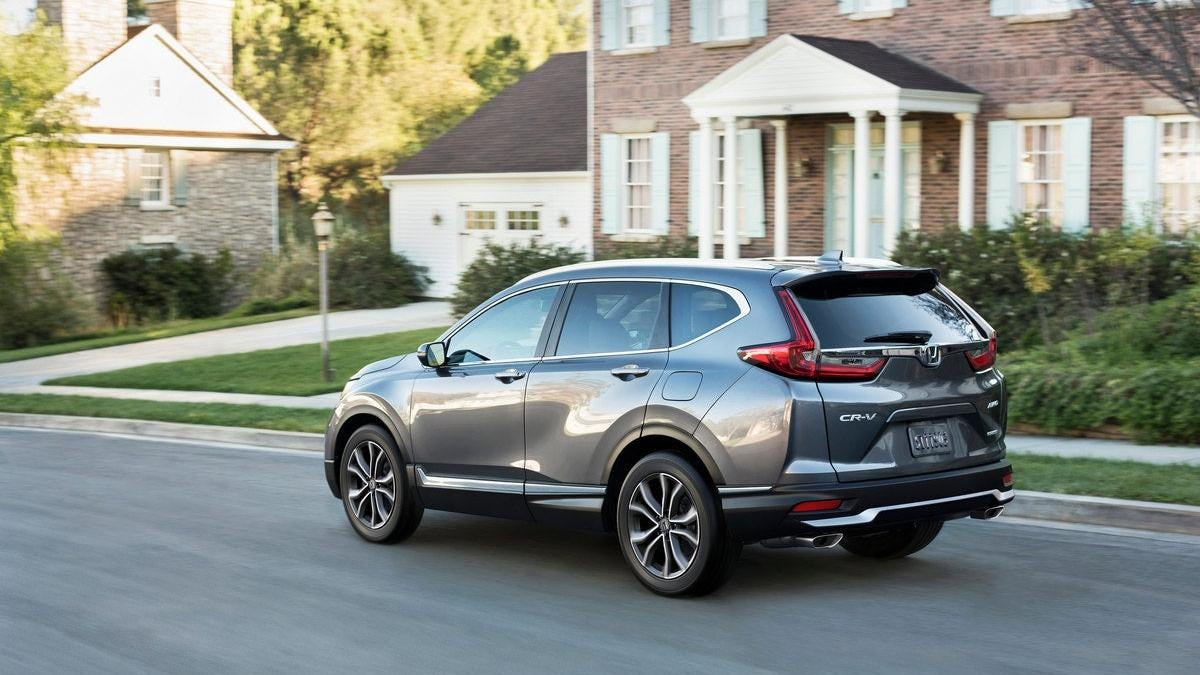Automakers Are Screwing Consumers Out Of The Equity In Their Leases
Several automakers are restricting your ability to use the current market to make money on your lease.
Everyone knows that the used car market is bonkers and dealers are desperate for inventory. This means that if you have a leased car you could potentially make some money by "selling" it to a dealer that doesn't usually deal in cars from your brand. Unfortunately, Honda/Acura is the latest automaker to prevent consumers from benefiting from these market conditions.
One of my first blogs as a Jalopnik writer was about "lease equity" and how you can use it. Essentially it works like this, when you lease a car there is a predicted residual (or resale) value for what that model will be worth at the conclusion of the lease. For example, let's say you lease a $30,000 Honda Accord and the residual is predicted to be $20,000 at the end of the three-year term. When you reach the end of the lease a consumer would have two options, turn the lease back in or they would be able to purchase their car for the residual amount.
In normal market conditions that predicted residual would be right on the money give or take a few hundred dollars. In my original post, I mentioned that if you drove your car well under the allotted mileage your leased car may have a market value that is higher than your lease buyout amount. This could potentially give you some "equity" to use towards your next car provided that a dealer was willing to pay the current market value for your lease rather than just the lease buyout amount. This was not a common occurrence. But due to the current inventory shortages in the pre-owned market, dealers are paying top dollar for trade-ins which means that most cars that are currently leased likely have "market values" above those residual (buyout amounts).
If we go back to the lease on the hypothetical $30,000 Honda Accord with a predicted residual of $20,000 the market value might be closer to $23,000. If you were leasing this car and your term was about to end, instead of turning the car back to your local Honda dealer you could get offers from dealers like Carvana, Vroom, and Carmax who would purchase your lease directly from Honda Financial services and cut you a check back for the $3,000 in equity. Or you could "trade" that Accord lease into a dealer of another brand and potentially use that equity towards your next purchase or lease.
According to a report by Automotive News Honda/Acura has joined General Motors, and Nissan/Infiniti in restricting what is known as a "third-party lease buyout." The report also says that Toyota is considering a similar measure.
The reason Honda (and other brands) are doing so is to protect its own dealers.
From the article –
"Our goal is to make sure our dealers have access to quality pre-owned Honda and Acura vehicles to satisfy the needs of new and returning customers," Petar Vucurevic, a vice president at Honda's financing arm, said in a statement.
These restrictions prevent consumers from shopping their lease to the highest bidder in order to take advantage of whatever equity they have, instead it forces them to return their car to the brand they got it from, and that dealer has absolutely no incentive to pay the current market value for that car.
Of course, consumers still have the option to buy out their own lease, then re-sell that car to whichever dealer they like. The downside is that if you do buy out your own lease you are likely on the hook for any local taxes and registration fees associated with that used car purchase and this would reduce your equity.
If you are currently leasing a vehicle, and you think you may have some equity, I would strongly encourage you to plan a few months in advance of your lease termination date. 1. Get your buyout amount from your leasing company. 2. Ask if that brand will allow for third-party buy-outs. 3. Get purchase offers from various dealers such as Carvana, Vroom, and Carmax. 4. If your brand doesn't allow for a third-party buyout, you may need to get a loan to purchase your car from the leasing company in order to flip it to the other retailers. Again this process can take some time so you don't want to wait until the last minute or you may forfeit any equity you have.
